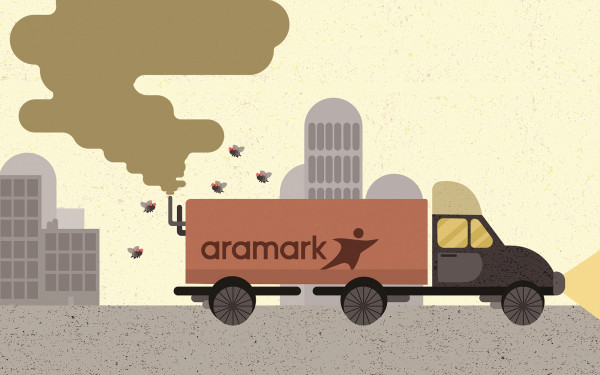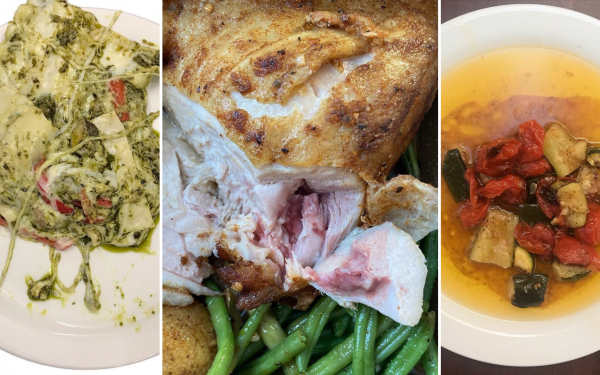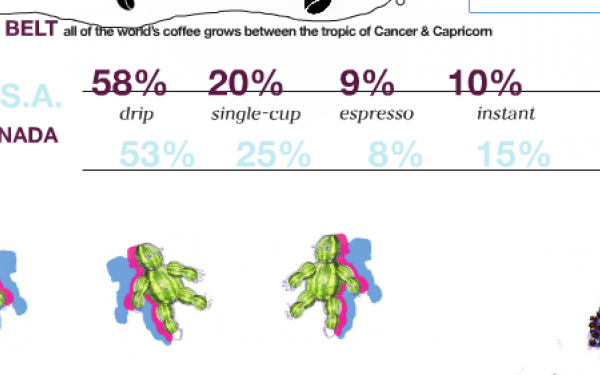Editorial: Is Concordia Truly a Fair Trade Campus?
On Aug. 30, Concordia officially became a fair trade campus.
This means that every dining hall, non-franchised campus cafe and student-run cafe at Concordia now offers exclusively fair trade coffee, chocolate, and at least three fair trade teas. Having said this, the university continues to use food service company Aramark as its main food provider, despite worldwide criticism of the company’s ethics.
Fair trade means food producers, especially in developing countries, are paid fair wages for the service they provide. A committee formed of l’Association québécoise du commerce equitable, Fairtrade Canada and the Canadian Fair Trade Network decides whether a university can be considered a fair trade campus, wrote Concordia spokesperson Chris Mota in an email.
To celebrate this recent achievement, the university organized a Fair Trade Campus Week from Sept. 26 to 30, featuring free chai lattes, bananas, and information booths. Apart from some workshops like one that explained how to make lip balm out of shea butter, the week was essentially a series of giveaways and information on Concordia’s involvement in fair trade food sales.
While The Link supports Concordia’s goal to handle its food sale in a more ethical manner, we believe it may be too early for the university to be tooting its own horn just yet.
Concordia chose Aramark to provide its food services in June of 2015, and the university has a five-year contract with the Philadelphia-based food service company. The decision was made after Concordia chose to stop using Aramark’s competitor Chartwells as its main food service provider. Both companies have been criticized for fraud and poor food quality—often resulting in food poisoning.
For Aramark, this problem has arisen in prisons. New Jersey corrections officer Crystal Jordan spoke to author Chris Hedges for Truthdig, explaining that once Aramark food was implemented in prisons, officers stopped eating the same food as the prisoners.
“But the prisoners had no choice. Diarrhea and vomiting is common among the prisoners,” Jordan said.
Aramark has tainted its reputation at other universities in Canada, too. According to the Toronto Star, Ryerson University spent millions of dollars in 2015 to cover losses incurred by Aramark. Students at Memorial University of Newfoundland complained that Aramark’s food was “inedible,” as reported by the CBC. Students living in residence at Memorial were also subject to mandatory meal plans for more than $2,000 a semester.
In 2014, a cafeteria worker employed by Aramark in Nova Scotia complained of racial discrimination to the Nova Scotia Human Rights Commission. Aramark never admitted responsibility, and complainant Charmaine Wynn was paid a $7,500 cash settlement by the company, CBC reported.
While The Link supports fair trade initiatives from Concordia, we think promoting our fair trade campus status, and hosting a Fair Trade Campus Week this early, is misleading. These titles imply all food being sold at Concordia is fair trade, when this is simply not the case.
When Aramark took its place as Concordia’s main food service provider, the university expected the company to prioritize sustainability—offering more vegan, vegetarian, ethically raised and fair trade options. This has happened. But there is still much work to be done before Aramark’s services can be described as fair trade in our university.
Beyond that, even if every single product Aramark provided to Concordia was fair trade, the company would still engage in highly problematic practices in its dealings outside of our university. Is it possible to consider our food service fair trade when it contributes to the profits of an ethically questionable company?
It’s great that Concordia is working towards becoming more ethical in its food service. The university has even implemented a Sustainable Food Service Advisory Committee to discuss topics including fair trade, local procurement, and waste reduction goals, according to Mota.
The Link supports all initiatives towards the goal of having a fair trade campus. But advertising the school as such when only three products are guaranteed to be fair trade is not transparent. We will continue to advocate for Concordia’s use of alternative food systems instead of choosing multinational companies.







